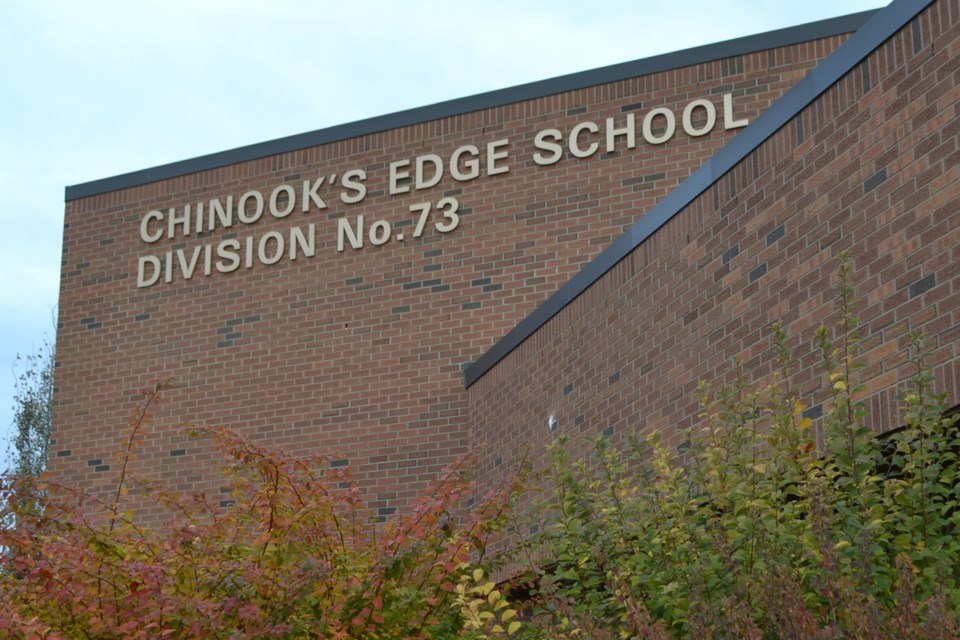INNISFAIL - Educators, parents and other stakeholders should be encouraged to provide input into the proposed new kindegarten to Grade 6 school curriculum announced last week, says Chinook’s Edge School Division (CESD) and Red Deer Catholic Regional Schools (RDCRS) officials.
The provincial government says the new curriculum is needed to bring schools up to date in key learning areas; the Opposition NDP calls says it a deeply flawed plan.
CESD includes schools across the region, while RDCRS includes schools in Olds and Innisfail.
Alberta Education is asking for public input over the next several months, with the plan to have the new curriculum in place for the 2022-23 school year.
The result of months of consultations with parents, teachers, subject matter experts and others, the new curriculum has four key themes:
• Literacy - Using phonics and other proven best practices to teach students to master reading, writing, speaking and listening.
• Numeracy - Students will gain essential knowledge for everyday tasks by learning to think fluently about numbers and equations.
• Citizenship - Students will develop an appreciation of how Canadian society functions by drawing from history, geography, economics, civics, and other studies.
• Practical skills - Students will learn essential skills such as household budgeting, digital literacy, business planing, healthy relationships and the importance of consent.
Jodi Smith is the RDCRS division principal. Her portfolio includes curriculum.
“We’ve had literacy and numeracy in our division as a focus so numerous for many years so obviously that is exciting to see that is still there,” she said. “It’s nice to see that is still taking a focus. We've done a lot of work in those areas.”
The focus on citizenship goes well with the division’s eight characteristics of Catholic identity, she said.
“When we see citizenship, that is our connecting with the community and we are really excited to explore that further,” she said.
The practical skills focus has “many interesting facets to it” and is something the division is interested in examining further, she said.
The division will be examining the draft in detail and providing feedback, she said.
“We will be encouraging any of our parents and teachers and our staff to provide input. This is our opportunity to give some constructive criticism and some kudos. We will definitely be supporting that call for feedback,” she said.
Jason Drent is CESD's associate superintendent of learning services. Like Smith, his portfolio includes curriculum.
CESD officials will be starting the review of the draft curriculum immediately, he said.
“There is definitely a lot to go through, a lot to look at,” said Drent. “It’s the first time there has been this much of a change, a pretty robust change.
“We are working through it. We’ve been waiting a lot time for this curriculum to come out. It’s been a number of years.”
Stakeholder input will be vital to the process, he said.
“Feedback is always important,” he said. “From a school jurisdiction and from a teacher's standpoint we are really excited to get started with the classroom validation phase. We will be providing our feedback back to the ministry on this.”
Alberta Education will be connecting with system leaders in each division this month regarding details of the validation process, he said.
Education Minister Adriana LaGrange says the new curriculum will “deliver our (government’s) commitment to Albertans to refocus on essential knowledge and skills in order to give our children the best possible chance at success.”
NDP education critic Sarah Hoffman calls the new curriculum faulted.
“Jason Kenney is replaces a decades-old curriculum with an even more outdated one,” said Hoffman. “This curriculum is unacceptable in its current form. This draft is the realization of many of the deep concerns that Albertans have felt as details of the UCP process leaked out.”
The history of the residential school system – which saw thousands of Indigenous students taken from their home communities and in many cases abused – will be taught starting in Grade 5.
Cree elder Betty Letendre was one of several Indigenous leaders consulted as part of preparing the new curriculum. She said not enough time was provided for input.
“I’m supposed to endorse (the draft) and I cannot do that,” Letendre told Global News. “We are the experts of our history. What we had to do was way too extensive for us to say, OK, now it’s done. It’s not.”
The Metis Nation of Alberta has called for the entire draft curriculum to be re-examined, saying in its current form it "carries a Eurocentric-American point of view that effectively eliminates the voice and history of the Métis Peoples in Alberta."
Jason Schilling, Alberta Teachers' Association president, says the association will conduct an independent review of the draft curriculum.
“What was released today is barely a plan, and certainly not a plan for success,” said Schilling.
The complete new curriculum draft is available for viewing online at alberta.ca/curriculum. Anyone interested in providing feedback and comments on the new curriculum can do so at that site until spring 2022.




